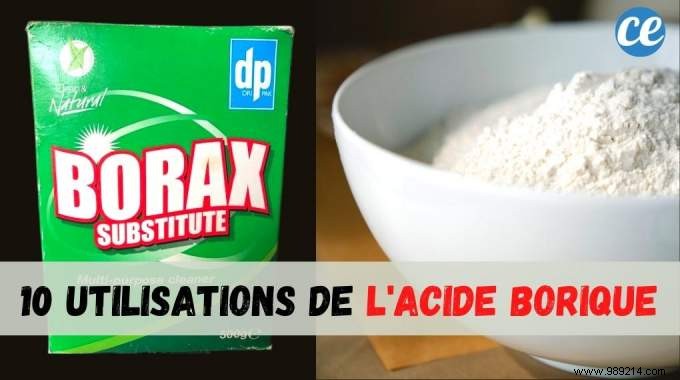
Do you know boric acid?
I admit that before I start making my cleaning products myself...
...I didn't know at all.
So, here I explain how to use it throughout the house.
And you'll see, it's really easy.
Plus, it's 100% natural and really cheap.
It was my grandmother who advised me to use boric acid.
I must admit that it is a product with amazing benefits, especially for cleaning.
Here are 10 easy uses of boric acid that no one knows about . Watch:
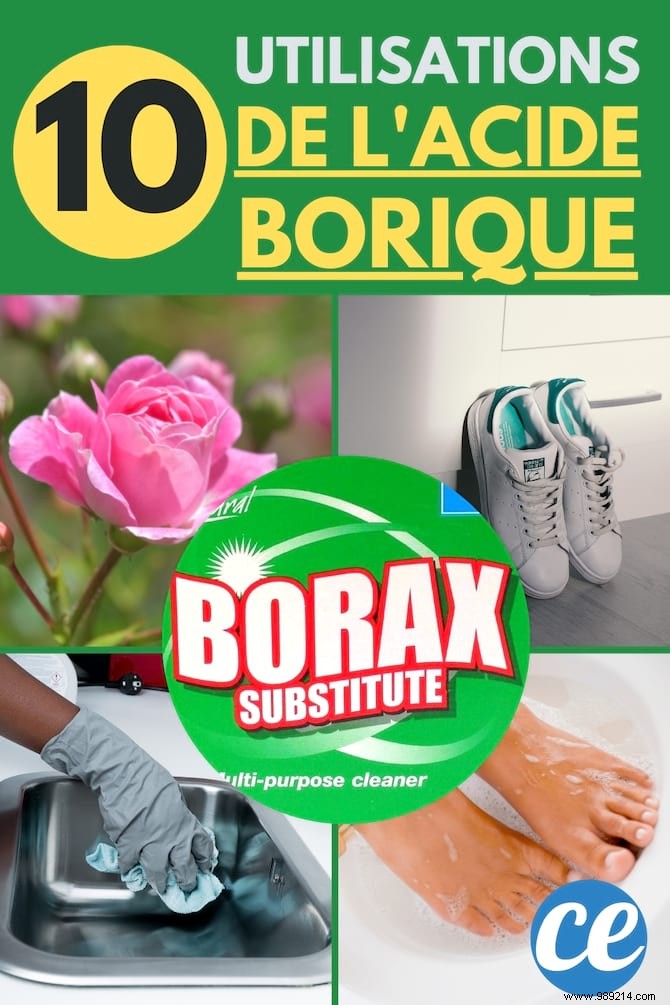
It is also called Borax.
It is a product that comes in the form of a white powder.
It is composed of hydrogen, oxygen and boron.
This last element is interesting for its antibacterial and antiseptic properties.
If it is perfect as a cleansing product, we avoid using it on the skin, especially damaged skin.
Why ? Because it can cause significant skin irritation in the event of prolonged contact or overdose of the product.

Stop cockroaches and other critters that invite themselves into homes!
But how to do without using the chemical insecticide bombs sold on the market?
Well, think Borax!
Mix borax with a little sweetened condensed milk to form balls.
Then place these dumplings where cockroaches pass.
They will be attracted to the sugar and will nibble on the ball.
Bad luck, borax is very toxic for them, and they will be killed in a few hours.
The advantage is that it's 100% natural and really cheap.
Obviously, it works against ants or other harmful insects by pouring boric acid directly into the nest.
It also avoids using Baygon, which is as toxic for insects as it is for our pets or our babies (and which is super expensive).
Be careful however, do not put the pellets within reach of a young child or a pet who might be tempted to chew them.
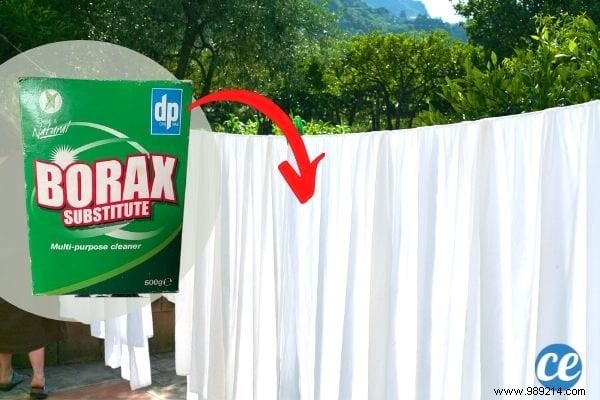
In case of perspiration stains or yellowish halos on the laundry, boric acid will be your best ally.
Form a paste with borax and water and spread it over the stains. Leave on for at least 15 minutes and rinse with clear water.
If needed, machine wash as usual.
Borax also works to whiten laundry that has turned gray.
On the other hand, be careful, do not abuse this trick which can damage the fibers of the fabric in the long run.
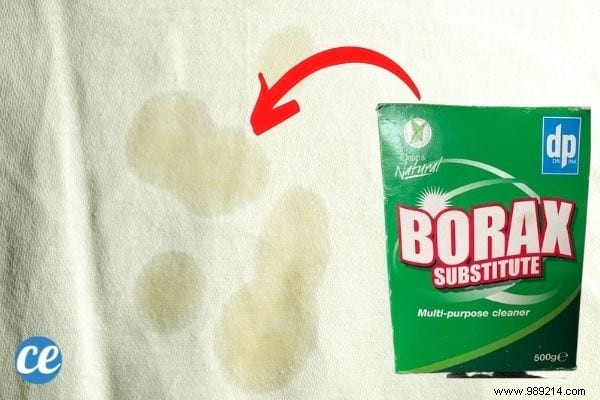
In the same way, you can remove a piece of clothing with a grease stain.
Form a paste with borax and water to spread on the greasy stain for 15 minutes.
Rinse with clean water and machine wash if needed.
You can also put the borax directly in the washing machine (without detergent) and run a long cycle for white laundry.
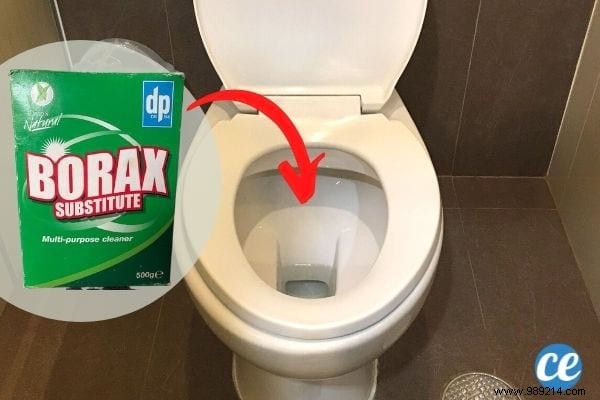
Depending on the region, the water is very calcareous.
This limestone deposits and takes color little by little, leaving an impression of dirt.
Most commercial anti-scale products do not come to the end.
Boric acid can.
How? 'Or' What ? Mix 100 g of borax in 4 liters of water and pour this mixture into the toilet bowl.
Scrub if needed and rinse. Renew the operation regularly.
The little extra? It disinfects the toilets at the same time.
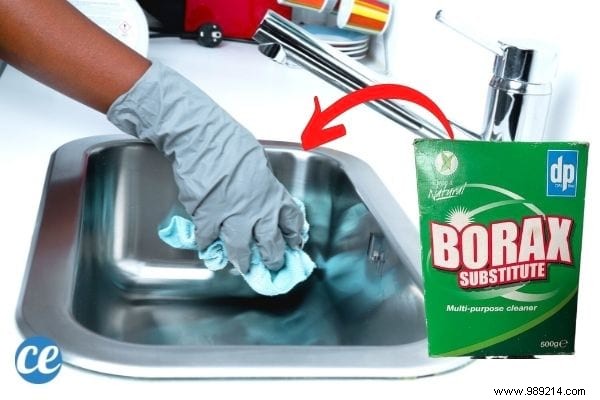
Whether porcelain or stainless steel, there are many stains on this type of sink.
To find a spotless sink, form a paste with 250 g of boric acid and lemon juice.
Take a little paste with a sponge and rub gently on the stains before rinsing with warm water.
It also works against rust or tea stains.
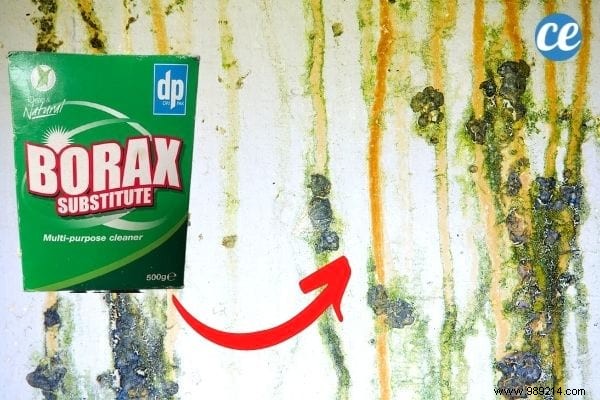
To remove mold from a wall or fabric, you can use borax.
Dilute 100 g of boric acid powder in 500 ml of water and soak a sponge in it.
Rub on wall mold and leave to act overnight.
When the stains are gone, rinse with clear water.
For clothes, soak them in a basin of 2 liters of water and 500 g of borax.
Rinse with clean water and machine wash if needed.
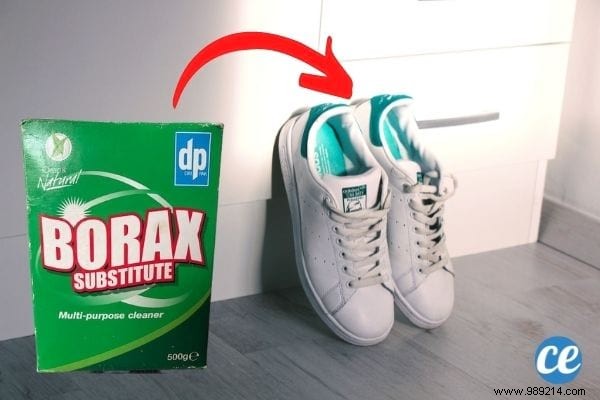
Your shoes don't smell like roses?
It's probably because of the bacteria that are responsible for bad odors.
To avoid this, sprinkle 1 tablespoon of borax in each shoe, remove the surplus and let it act for 24 hours.
No more stinky shoes in the blink of an eye.
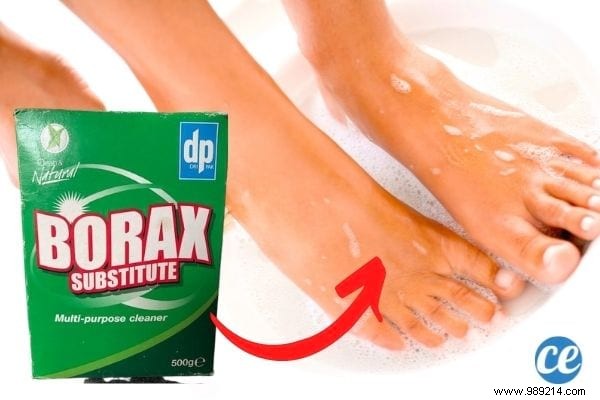
Might as well treat excessive foot sweat while we're at it.
It is very often responsible for these bad smells in the shoes.
The solution ? A boric acid foot bath.
Soak your feet in a basin of lukewarm water with 1 tablespoon of borax in it.
And this every night for 3 weeks as an attack cure. Then, once a week thereafter.
It deodorizes the feet, kills bacteria that cause odors and limits perspiration.
You can hardly do better for a natural product and so cheap!
This footbath is not recommended if you have open wounds or lesions on the skin.
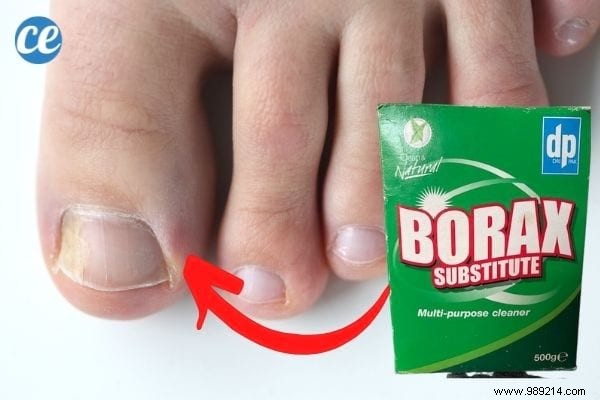
A 3% boric acid solution (3g of boric acid for 100ml of water) can treat fungal infections.
Put this remedy in a spray bottle and spray on your feet.
Leave on for a few minutes before rinsing. Then, dry your feet well with a clean towel and moisturize if needed.
This solution works for all external fungal infections .
On the other hand, it is not suitable for fungi located on the mucous membranes of the mouth or intimate areas.
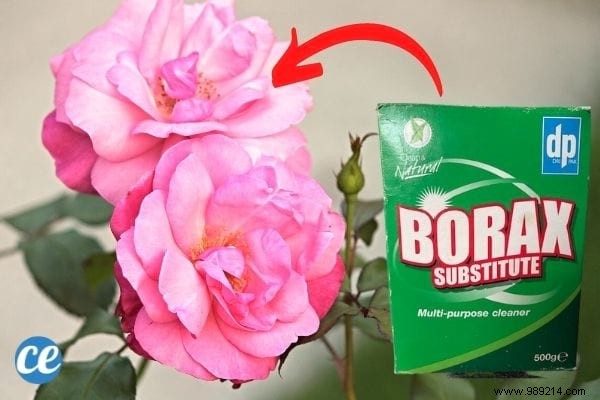
If your roses show brown spots on the leaves, it is infested with fungi.
The most common is powdery mildew.
To combat this disease naturally, spray a solution of boric acid on and under the leaves of the plant.
For this, mix 1 teaspoon of borax in 500 ml of water.
Treat your rose tree preferably in the evening or on a day when the sun is overcast, but without rain. Why ? Because the sun can burn the leaves.
It is a very easy product to find in a drugstore or a DIY store.
Or on the Internet, here.